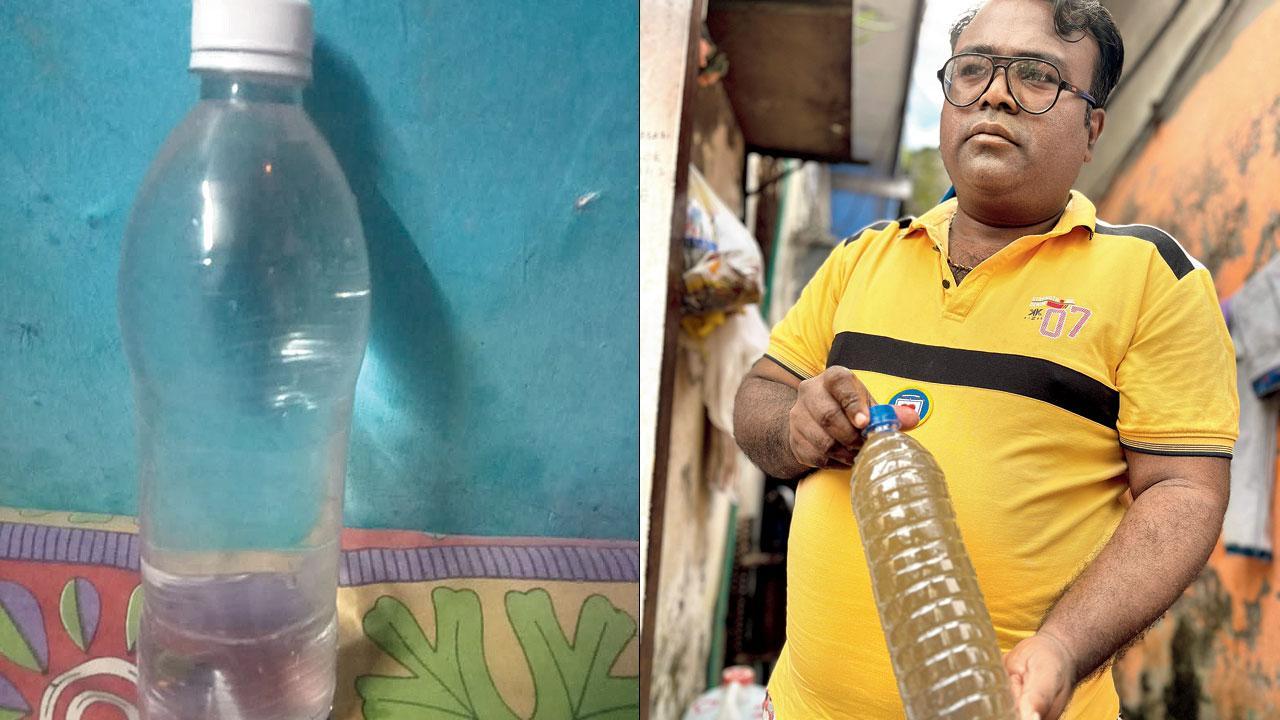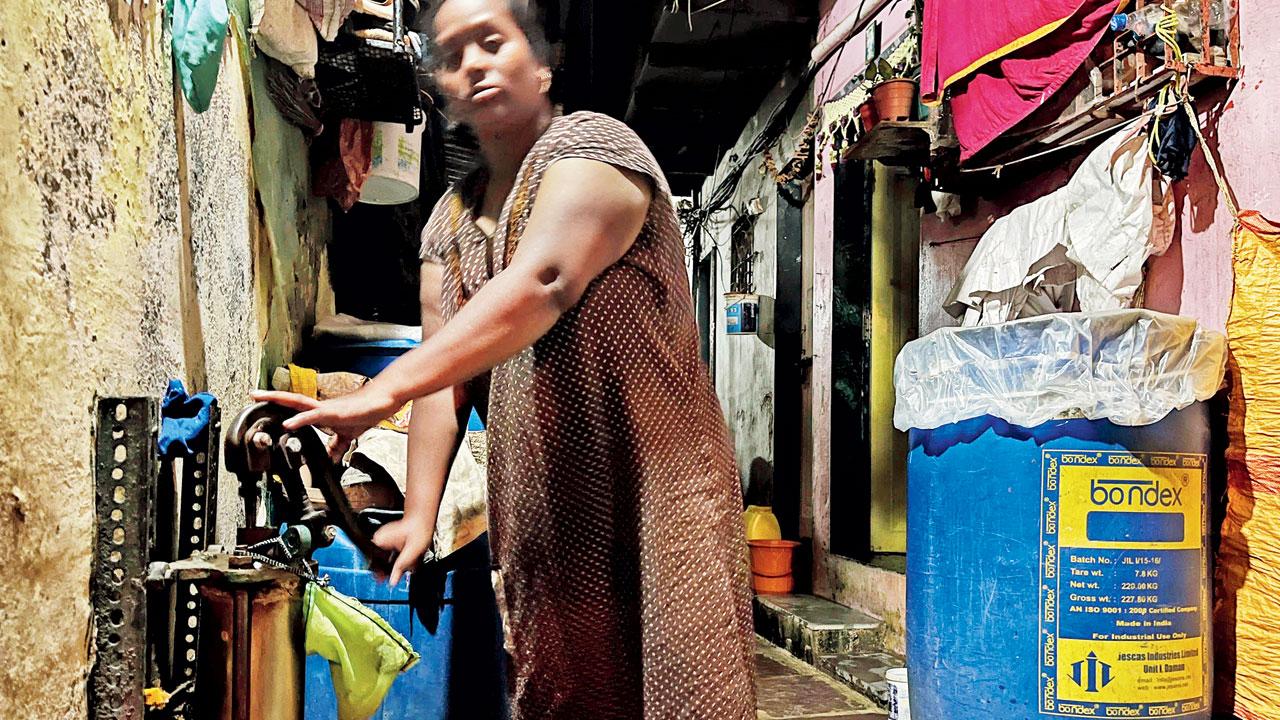Residents’ determination sees clean water in taps again, but say financial struggles persist

Chawl received black, pungently smelling water on August 9; Cleaner water was received after the water supply
Water supply has been fully restored to Santacruz chawl, accompanied by the BMC's commitment to consistently supply water for those who faithfully pay their water bill. The residents were surprised to receive the water at 4 am, which was not the case earlier as per the residents.
Confirming the development, BMC officer Sudhir Jadhav stated a day after mid-day's report, that they are prepared to address the losses faced by residents of Subramanium Chawl, Shiv Shankar Chawl, and LBS Nagar, who adhere to timely water bill payments. Despite enduring issues of receiving black, pungently smelling water from the nullah—often laden with particles for consumption—and even those who pay but seldom receive it, residents continue to pay their water bills. They fear that if they stop payments, the BMC might demand all pending dues at once, causing financial strain or even a supply cut.

Though residents are hopeful, financial concerns beyond water bills persist. Pics/Rian K
Each household, which had previously invested approximately Rs 40,000 in hand pumps and recurring maintenance expenses due to insufficient water pressure supporting taps, was surprised upon receiving water with robust force and improved cleanliness. This leads to the question: "Why in Mumbai do we have handpumps while villages are getting taps?" This pertains even to legally housed residents.
"I will instruct my office to assess the paid bills and take appropriate measures after review. Not only in this chawl but also in neighbouring areas, water force and quality will not be compromised," said Jhadav, water works assistant engineer of H East ward.
Though residents are hopeful, financial concerns beyond water bills persist. Nitin Kamble, a community leader from the chawl, highlighted the additional financial burdens: "What about the yearly Rs 10,000 we must pay for maintaining the 250 metred pipes connected to our homes via the Vakola nullah? The nearby water pump's dysfunction causes nullah water to infiltrate. And what about the money we spend on clean water from the water mafia due to unaddressed BMC complaints? The water that we received at 4 am was clean but was not fit for consumption, but we could at least wash our clothes.”
Rajkumari Jaiswal, who, at 60, spends an hour pumping water alone—straining her bones—hopes for clean water. She laments the Rs 1,000 spent each week on bottled water. mid-day observed the water search beginning at 4 am, with residents forming lines outside houses with slightly cleaner water. The financial strain of these expenses makes ends hard to meet. "I'm buried in loans due to this; my children's education suffers. Clean water consumes my money," said Aarti Jha.
Nearly everyone mid-day spoke to reported health issues due to water contamination, including rashes that feel like "red ant bites." Suman Mishra, experiencing itching that disrupts sleep, likened it to torture, affecting productivity as an electrician. Akshay Lonkhande, passionate about his work, finds his aspirations subdued by persistent sickness.
Economist Vibudhi Patel provided insights into the wider economic implications and the absence of proper Water, Sanitation, and Hygiene (WASH) services in slums. Poor WASH conditions lead to frequent illnesses, lowering workforce efficiency, productivity, and the nation's GDP. Patel questioned achieving a "5 trillion dollar economy" when a significant workforce operates in precarious and unhygienic environments. She emphasised that poor people are taxpayers, contributing indirectly even when buying simple items. She pointed to WHO studies, suggesting that investing in WASH services for the poor and slum improvement programs can reduce healthcare burdens, enhance quality of life, and have a 1:5 cost-to-benefit ratio.
 Subscribe today by clicking the link and stay updated with the latest news!" Click here!
Subscribe today by clicking the link and stay updated with the latest news!" Click here!










